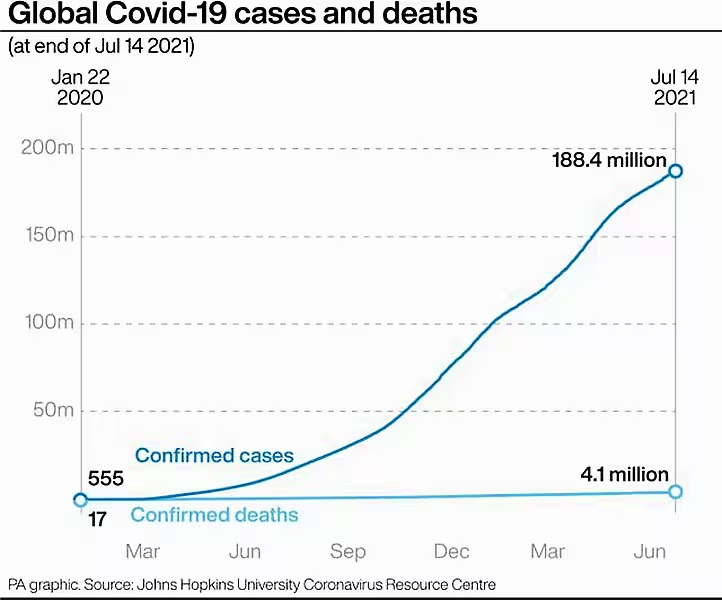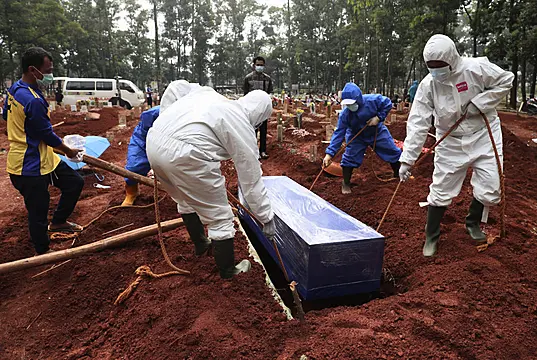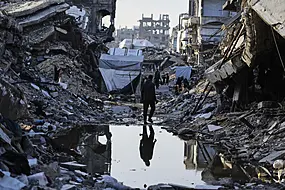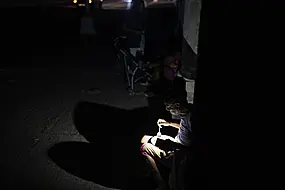Covid-19 deaths and cases are on the rise again globally in a dispiriting setback that is triggering another round of restrictions and dampening hopes for an almost normal summer of fun.
The World Health Organisation (WHO) reported on Wednesday that deaths climbed last week after nine straight weeks of decline. It recorded more than 55,000 lives lost, a 3% increase from the week before.
Cases rose 10% last week to nearly three million, with the highest numbers recorded in Brazil, India, Indonesia and Britain, WHO said.
The reversal has been attributed to low vaccination rates, the relaxation of mask rules and other precautions, and the swift spread of the more-contagious Delta variant, which WHO said has now been identified in 111 countries and is expected to become globally dominant in the coming m

Sarah McCool, a professor of public health at Georgia State University, said the combination amounts to a “recipe for a potential tinderbox”.
“It’s important that we recognise that Covid has the potential for explosive outbreaks,” warned Dr David Dowdy, an infectious disease specialist at Johns Hopkins University.
Amid the surge, the death toll in hard-hit Argentina approached 100,000. Daily coronavirus deaths in Russia hit record highs this week. In Belgium, Covid-19 infections, driven by the Delta variant among the young, have almost doubled over the past week. Britain recorded a one-day total of more than 40,000 new cases for the first time in six months.
In Myanmar, crematoriums are working morning to night. In Indonesia, which recorded almost 1,000 deaths and more than 54,000 new cases on Wednesday – up from around 8,000 cases per day a month ago – people near Jakarta are pitching in to help gravediggers keep up.
“As the diggers are too tired and do not have enough resources to dig, the residents in my neighbourhood decided to help,” Jaya Abidin said. “Because if we do not do this, we will have to wait in turn a long time for a burial.”

In the US, with one of the highest vaccination rates in the world, newly confirmed infections per day have doubled over the past two weeks to an average of some 24,000, though deaths are still on a downward trajectory at around 260 a day.
Los Angeles County, the most populous county in the US, reported its fifth straight day of more than 1,000 new cases on Tuesday.
Tokyo is under a fourth state of emergency ahead of the Olympics this month, with infections climbing fast and hospital beds filling up. Experts have said caseloads could rise above 1,000 before the Olympics and multiply to thousands during the games.
The spike has led to additional restrictions in places like Sydney, Australia, where the city’s five million residents will remain in lockdown at least to the end of July, two weeks longer than planned. While the country’s second-largest city, Melbourne, will lockdown for five days from Thursday night due to growing clusters of the virus.
South Korea has placed the Seoul area under its toughest distancing rules yet because of record case levels.

Parts of Spain, including Barcelona, moved to impose an overnight curfew. London mayor Sadiq Khan said masks would be required on buses and trains even after other restrictions in England are lifted next week. Italy warned all those going abroad that they might have to quarantine before returning home.
As troubling as the figures are around the world, they are still well below the alarming numbers seen earlier this year.
Seven months into the vaccination drive, global deaths are down to around 7,900 a day, after topping out at over 18,000 a day in January, according to Johns Hopkins data. Cases are running at around 450,000 a day, down by half since their peak in late April.
WHO acknowledged that many countries are now facing “considerable pressure” to lift all remaining precautions but warned that failing to do it the right way will just give the virus more opportunity to spread.
Pressure is growing worldwide to boost vaccination rates to counter the rise.







